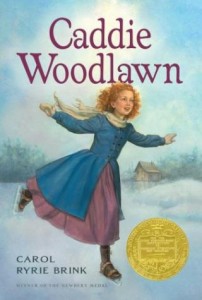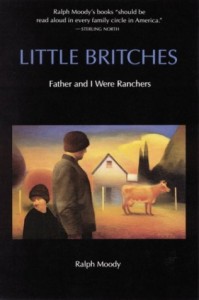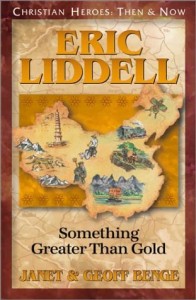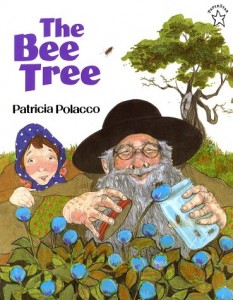 The thing that drew me to Sonlight originally was recognizing titles of books I had read and enjoyed as a child. Probably my favorite genre as an emerging reader was pioneer stories. One of my all-time favorite novels was Caddie Woodlawn, so I was very excited to realize it was part of Sonlight's Intro to American History program (Core E). I remembered what exciting adventures Caddie had in the 1860s on the Wisconsin frontier. I can't tell you how many times I read it when I was growing up, because I was an avid reader even then, and re-read my favorites over and over. I couldn't wait to share this wonderful story with my own children.
The thing that drew me to Sonlight originally was recognizing titles of books I had read and enjoyed as a child. Probably my favorite genre as an emerging reader was pioneer stories. One of my all-time favorite novels was Caddie Woodlawn, so I was very excited to realize it was part of Sonlight's Intro to American History program (Core E). I remembered what exciting adventures Caddie had in the 1860s on the Wisconsin frontier. I can't tell you how many times I read it when I was growing up, because I was an avid reader even then, and re-read my favorites over and over. I couldn't wait to share this wonderful story with my own children.
Finally, it was on our Read-Aloud schedule--and it was every bit as good as I remembered. What surprised me was what I got out of it. Even though I had read it several times as a young person, this time through I was reading it through the eyes and life experience of a mom.
For those of you who haven't read the book, it is based on a true story. Caddie is a young girl (about 11, I think) who was permitted to pretty much grow up as a tomboy running "wild" with her brothers. She had a sister who was sickly and died when she was younger, and her father thought that she might grow up to be healthier if she was allowed to run outside in the fresh air with the boys rather than have to stay in the house doing "girl" things all the time. But then, one day, the children were rude to a visiting cousin and Caddie got into more trouble than the boys. She was sent to her room without supper. After she had been there for several hours her father came to her room to talk to her. I love what he had to say to her:
"Perhaps Mother was a little hasty today, Caddie," he said. "She really loves you very much, and, you see, she expects more of you than she would of someone she didn't care about. It's a strange thing, but sometimes we expect more of girls than of boys. It is the sisters and wives and mothers, you know, Caddie, who keep the world sweet and beautiful. What a rough world it would be if there were only men and boys in it, doing things in their rough way! A woman's task is to teach them gentleness and courtesy and love and kindness. It's a big task, too, Caddie--harder than cutting trees or building mills or damming rivers. It takes nerve and courage and patience, but good women have those things. They have them just as much as the men who build bridges and carve roads through the wilderness. A woman's work is something fine and noble to grow up to, and it is just as important as a man's. But no man could ever do it so well. I don't want you to be the silly, affected person with fine clothes and manners whom folks sometimes call a lady. No, that is not what I want for you, my little girl. I want you to be a woman with a wise and understanding heart, healthy in body and honest in mind..."
As a young girl, that passage went right over my head. I didn't remember it being part of the story at all. As a mother with young daughters, it brought tears to my eyes.
That experience helped me realize that the differences in how a person interprets or is a affected by a book are not based on age or grade level, but rather on life experience. Later I re-read Jane Eyre, and the same thing happened. I was amazed at how much I got out of it as an adult that I had either forgotten or didn't register when I read it as a teen.
Think about a book you enjoyed when you were younger. If you read it again today you would take very different things from that book, because of where you are in life today and because of your life experiences up to this point. That's what makes Sonlight so flexible for using with multiple ages--and what makes read-aloud time so rewarding for the whole family.
What childhood favorites have you re-read lately?
Enjoying the adventure,
~Karla Cook
Lifelong Learner








